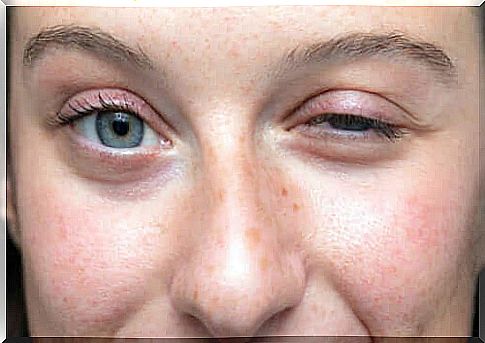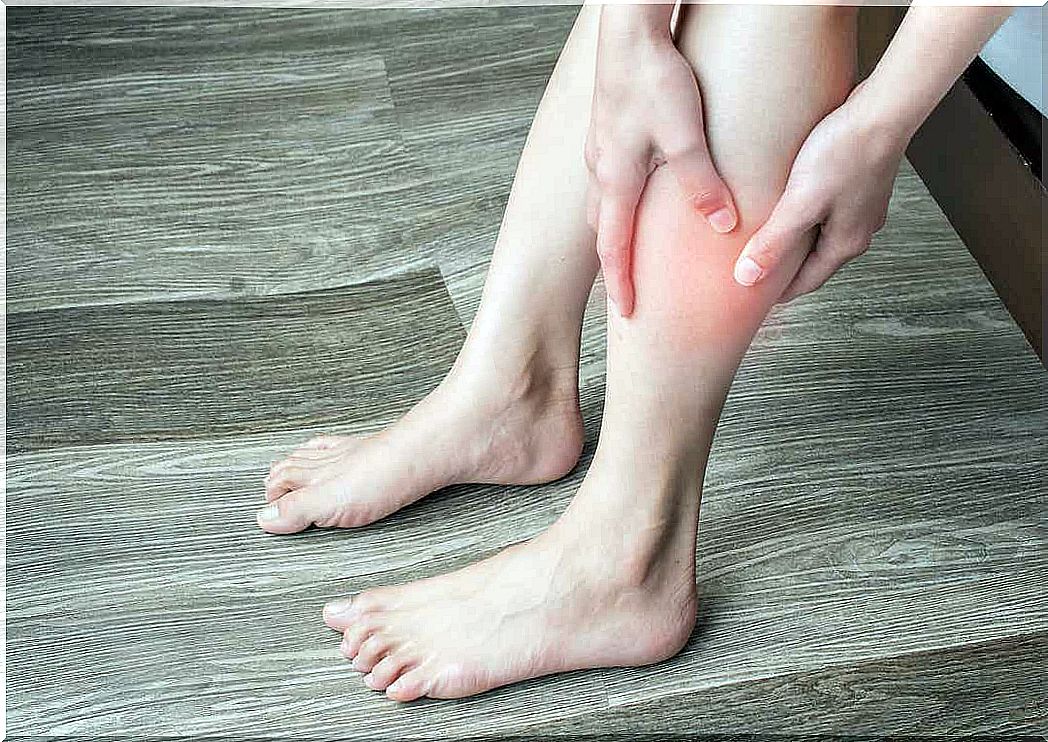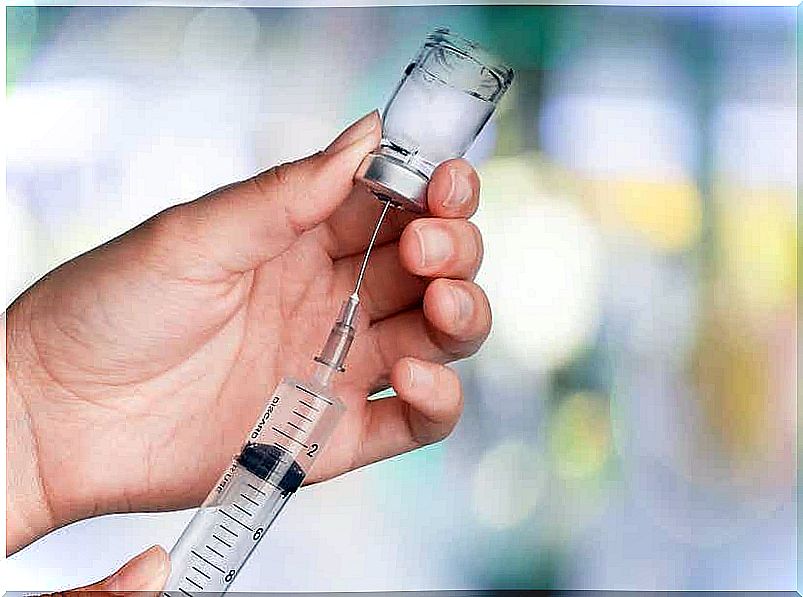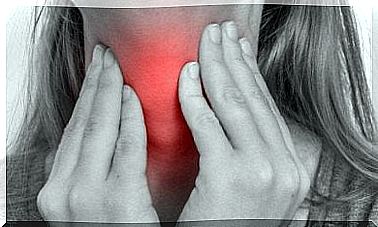What Is A Tensile Test And What Is It Used For?

A tensile test is a pharmacological test. It consists of injecting edrophonium chloride, which are substances that respond to the transmission of nerve impulses at the muscular level.
The purpose is to study a patient’s muscle fatigue. Therefore, doctors prescribe it to diagnose and assess the response to treatment of myasthenia gravis.
This test is considered effective and is the most commonly used test for this disease. However, it must be carried out with several precautions. In this article, we explain what a tensile test is and what it entails.
What is a tensile test?
The tensile test is also called the Anticude® test. These names vary because they refer to the brand name of the medicine.
Tensilon® is edrophonium chloride, while Anticude® is edrophonium bromide, as a release by Agència Valenciana de Salut explains. These drugs act at the neuromuscular level and prevent the breakdown of acetylcholine, which is a neurotransmitter that acts in the neuromuscular plate.
That is, in the area where neurons bind to muscle fibers to stimulate them. By inhibiting the breakdown of acetylcholine, a more marked muscle stimulation occurs.
Therefore, the tensile test consists of observing which reaction takes place at the muscular level. There are diseases such as myasthenia gravis where there are changes in the muscle fibers due to acetylcholine. Therefore, it is useful to diagnose and monitor this disease.

When is a tensile test necessary?
Doctors usually perform the tensile test when it is suspected that the patient has myasthenia gravis. They also use it to control the dose of anticholinesterase drugs when a diagnosis of the disease has already been made and the patients are taking these drugs as treatment.
As explained in the section above, the neuromuscular system is the place where nerves and muscle fibers communicate. In this area, the nerve secretes a neurotransmitter called acetylcholine, which binds to muscle receptors.
In myasthenia gravis, the immune system produces antibodies that block or destroy the acetylcholine receptors. As a result, the muscle receives less stimulation. Therefore, there is weakness and rapid muscle fatigue.
In myasthenia gravis, the weakness is exacerbated by the use of the affected muscle. According to Mayo Clinic specialists, the symptoms improve with rest.
As the years go by, the symptoms develop and rest periods no longer compensate for the weakness. More than half of patients begin to experience signs in the eye muscles. Therefore, two very typical symptoms are drooping eyelids and double vision.
What does edrophonium do for myasthenia gravis?
The tensile test does not cause any degradation of acetylcholine. An enzyme called acetylcholinesterase is responsible for this breakdown. Since it is not degraded, there is greater concentration. Therefore, muscle stimulation is greater.
When a patient with myasthenia gravis undergoes a tensitlon test, the muscles are more powerful. In addition, this test also makes it possible to assess which dose is the most appropriate treatment.
Preparation
Before performing a tensile test, it is important to consider certain aspects. The doctor needs to know what medication the patient is taking, including supplements or other herbal remedies.
The reason is that many of these substances can affect the outcome. For example, those who most often change the tensile test are acetylcholinesterase inhibitors. These are drugs used to treat dementia, such as donepezil and rivastigmine.
The doctor will advise on whether the patient should discontinue consumption before performing the test. It is also possible that the doctor may impose some dietary restrictions during the days leading up to the test.
How is a tensile test performed?
A doctor performs the tensile test and it usually takes place at a clinical specialist in neurology. First, a specialist places an intravenous needle in the patient’s arm or hand.
They then inject a small amount of edrophonium through the needle. To begin examining whether myasthenia gravis is present, the doctor asks the person to make repeated movements.
As an article by Servizo Galego de Saúde explains, movements can be with different parts of the body. For example, getting up from a chair, crossing your legs, keeping your arms raised. The test also studies the voice and asks the patient to count down from 100.
During the tensile test, several doses of the drug are injected. This tests whether the muscle regains strength after each injection. If it does, the doctor will diagnose myasthenia gravis.
What does the result mean?
The results of a tensile test are usually immediate. As we explained in the preceding paragraph, the patient receives one myasthenia gravis diagnosis , if the muscle regains some strength after each injection of edrophonium.
In some cases, however, other tests are needed to confirm the diagnosis. In this case, if edrophonium produces a transient stimulation, it means that the disease has worsened. On the other hand, if injection of the drug weakens the muscle, the test indicates an overdose of anticholinesterases.

Risks and recommendations
Experts consider the tensile test to be effective and safe. However, there are several side effects that often occur. However, they are short and usually last no more than a few minutes.
Nausea and abdominal pain are two of the most common effects. Shortness of breath, sweating, dizziness and blurred vision may also occur. Other patients experience eyelid twitching, increased salivation and even fainting.
As with any injection, the injection site may develop bruising. Ideally, the patient should apply pressure or ice during the first 24 hours to reduce swelling.
There are few cases where a tensile test has serious consequences. Therefore, experts do not recommend it for people with arrhythmias, low heart rate or arterial hypotension.
The same is true for patients with sleep apnea and asthma. Although there are actually limited side effects, a specialist may, in cases where the discomfort persists, administer an atropine injection to reverse the effects.
Myasthenia gravis is the main cause of this test
A tensile test is a useful test to diagnose myasthenia gravis. It is also useful for monitoring the treatment of this disorder.
Problems with drug dosing are common. It is important to test these patients regularly to avoid serious complications. In addition, experts consider this test to be safe and effective as long as it takes place in a controlled environment.









